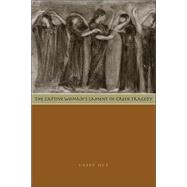
What is included with this book?
| Acknowledgments | vii | ||
| Introduction | 1 | (29) | |
| CHAPTER 1 Men's Songs and Women's Songs | 30 | (27) | |
| CHAPTER 2 Identifying with the Enemy: Love, Loss, and Longing in the Persians of Aeschylus | 57 | (34) | |
| CHAPTER 3 Athenians and Trojans | 91 | (26) | |
| CHAPTER 4 The Captive Woman's Lament and Her Revenge in Euripides' Hecuba | 117 | (19) | |
| CHAPTER 5 A River Shouting with Tears: Euripides' Trojan Women | 136 | (15) | |
| CHAPTER 6 The Captive Woman in the House: Euripides' Andromache | 151 | (12) | |
| Conclusion: The Tears of Pity | 163 | (6) | |
| Bibliography | 169 | (16) | |
| Index | 185 |
The New copy of this book will include any supplemental materials advertised. Please check the title of the book to determine if it should include any access cards, study guides, lab manuals, CDs, etc.
The Used, Rental and eBook copies of this book are not guaranteed to include any supplemental materials. Typically, only the book itself is included. This is true even if the title states it includes any access cards, study guides, lab manuals, CDs, etc.